The NeverEnding Story. Part 1 of 3.
Psychology Version.
Bastian, an eleven-year-old boy, takes refuge in a bookstore to escape from his
schoolmates, who think he is crazy
because he talks to himself and tells fantastic stories: We can understand how Bastian embodies the child who has not
had the opportunity to properly develop
his own sexual identity. In fact,
Bastian had a cold and not very
affectionate father. All this, can
predispose a distancing from what one's father represents: ...his masculinity. In this way, a sexual orientation directed towards
people of the same sex is formed, to unconsciously fill an emotional void. This psychic event is highlighted by
psychologist Joseph Nicolosi in his
book “Therapy of Male Homosexuality, a New Clinical Approach”.
In other words, it can happen
that some people who have not experienced in their family habitat, feelings of belonging, trust and security... when a
virile confrontation with others is needed, risk experiencing emotions full of
distrust and insecurity. In this
context, Bastian's escape in front
of his schoolmates… expresses a perception of low self-esteem and in one’s attitudes. This low self-esteem, as a
result... can sometimes be expressed in the fear of being judged or
humiliated by others. One of the consequences of this feeling of internal distrust, can lead the
individual to search in a person of the same
sex, that side of belonging and trust... that has been missing.
Bastian explains to Mr. Coreander that he
tells the stories alone, because there is no
one to listen to him: If as children we were not listened to,
understood or loved by our family members, we risk closing ourselves off. The
consequences of this psychic event
can be multiple; let's try to analyze some of them. In short, we can create perceptive filters that are not in line
with the reality that surrounds us.
For example, some individuals may be sure that a particular event is true,
while in reality... it is not; or we
may be convinced that some people hate us, just because they don’t share our
opinions. Another harmful aspect that comes from closing ourselves off, can be
that sometimes we unconsciously change the words of our neighbor, from positive to negative. In this way, the internal perceptive filter has transformed the meaning of the sentence said, by others. The external world can
ultimately be seen and perceived, as a hostile
world full of adversaries. In this way, the mind creates and forms unconscious defense mechanisms, which
have the function of protecting the person from non-existent enemies. This
event, we can also understand from the character of Don Quixote, who fought against windmills.
Bastian, speaking of his father, states that he doesn’t care about anything; while his mother is dead: This event leads us to consider a truly singular fact... when
a young person is not listened to by his parent or is not loved, the people he relates to are perceived as individuals
who don’t know how to listen and comprehend. This happens because the situation
experienced in the past is projected, as something that is
repeated in the present time.
Indeed, our mind... convinced of this thought full of negativity, will increase
this feeling of incomprehension,
acting in such a way as to strengthen and enhance this erroneous concept.
For example, if a young person
had an absent and unavailable
father, when he relates to others, unconsciously... he will try to recreate this behavioral model, expressing himself in an inadequate manner or in
such a way as to force the
interlocutor, to not fully understand the young person's argument. Why does all
this happen? Simple, our unconscious
memory has systematically recorded this type of attitude. It’s no coincidence, that one of the functions of our
unconscious memory is to facilitate the Ego
in presenting certain behavioral patterns, which have been reiterated and repeated for a long
time. To change this state of affairs, it’s necessary to do a self-analysis regarding one's
relationship difficulties; after which it’s necessary to reorganize one's way of thinking and communicating.
As we have seen, Bastian's father is a cynical parent who is indifferent to the psychological
needs and necessities of his son. This lack
of care for the son, can lead the descendant to emotionally distance himself from his parent, creating
a void or rather an internal "Nothingness", which over time
longs to be filled. In short, when one has not received affection and love from one's family, the void that has been created in one's
deepest being, sooner or later will seek to
be filled with a substitute...
which is usually sought in others.
Furthermore, a child who has had an absent and superficial father, will not be able to identify with the father figure; and in the future… he may try to fill this gap by becoming Gay.
Bastian grabs and takes away a strange book, which has on the cover two snakes, one light and one dark… that
eat their tails: The two snakes
symbolize the AUTHENTIC ESSENCE (light snake) that is opposed to the “False Self” (dark snake). People who as
children have lived in a loving and welcoming family environment, have a greater possibility of developing a real individuality. All this happens,
because feelings and decisions have been welcomed and evaluated with love and respect; even if at times they may have been held back. Benevolent and balanced educators also
know how to say “NO”; but they explain and make the descendant
understand the reason for their “NO”.
In other words, agreeing without a healthy discernment to the needs of
children, is not educating them… but spoiling
them. It’s necessary to explain with correctness and simplicity, the reasons why parents make a certain
assessment. The children, even if at the moment they don’t accept the “NO” received; over time... will know
that sometimes, some requests cannot be fulfilled in an arbitrary manner.
Bastian locks himself in the attic of the school, to read the book called… The Neverending
Story: All the people who have lost their "True Self", unconsciously or not, will push and appreciate
other subjects to follow their same paths. For example, there are many gays who
think they were biologically born that way ... but all this doesn’t always correspond to the truth. In fact, many scholars have
discovered that hormonal dysfunctions, don’t compromise sexual orientation.
The various Messengers of the peoples of Fantasia, speaking among themselves,
assert that they must go to the Childlike
Empress, to implore her advice
and help. Indeed, Fantasia is in
danger, because The Nothing is destroying all their kingdoms: Our real
personality (Childlike Empress) is
in danger when it’s attacked by people who didn’t accept it in childhood… and
at the same time mocked or trampled on it. Sometimes, it can happen that the
feelings, desires or emotions of a child, are not welcomed or approved by
educators. This negative feedback
from family members, can become an unfavorable and harmful event, for the
healthy development of the “True Self”.
In essence, the “Nothing” of Ende’s
story, in this area… embodies the negative thoughts of family members, which
prevent the child’s real personality from growing,
evolving and developing correctly. The kingdoms
that are destroyed by the “The Nothing” are the intrinsic faculties of the child, who
precisely because he is not welcomed lovingly, risks canceling and destroying
his own inner attitudes. At the same time, the Childlike Empress personifies an authentic identity that tries in every way, to survive the total
destruction of the real personality.
One of the messengers… declares that when one
observes the Nothing, it’s as if one
were blind: The child who risks
being devoured by the “False Self” (The
Nothing), doesn’t realize the inner change that occurs. In other
words, let us remember that children, in order to develop their individuality, must have parental
figures as points of reference. The
latter must wisely welcome the true essence of the child, trying to help the
real identity of the descendant grow. All this, through attention, care,
positive feedback, acceptance of the child's character and behavioral
differences. On the contrary, if a child is mocked, vilified and beaten, because he doesn’t correspond to the overly severe expectations of the educators,
he risks unknowingly building a fictitious
personality (The Nothing).
The Will-o'-the-wisp, says that some have
intentionally let themselves fall
into The
Nothing. In fact, The Nothing releases an irresistible force, a power of attraction that becomes greater the
bigger the stain: The irresistible force of building a fictitious personality,
lies in the fact that a child inevitably seeks the approval of his family. Being accepted
by one’s parents, is an event that favors the cognitive and emotional development of descendants.
All this, when one lives in a hospitable and benevolent family habitat.
Even in our lives, we can meet
will-o'-the-wisps... that is, people who release sparks from every pore, when
they have to commit malicious acts.
And unfortunately these individuals, who have lost the path of Justice, will try to make all those who
diligently follow... authenticity lose the right path.
The Messengers reach the Ivory Tower, where the Childlike Empress is; and unfortunately
they discover that she is ill. No
one has yet found a medicine that is
able to heal her: The real identity
(Childlike Empress) of a child, gets
sick when it is not perceived by the family as a resource. What happens is easy to say... the child's faculties are repressed and trivialized, to the detriment of a hypocritical personality (the Nothing) that takes its place.
Let's try to make an example... if a child shows that he has some talent in dancing, he can be harshly criticized by his parents for having
expressed the desire to become a dancer. While it’s inculcated in the child's
mind, that it’s better to become a lawyer.
In the child's mind, an internal split
occurs, where personal feelings and faculties are repressed and hidden... to the detriment of the selfish desires of the family. In this
way the child, having become an adult, will try in a conditioned manner to
follow sterile rules, depriving his
mind of the creative power of
imagination, fantasy and art. Essences considered abnormal and
harmful, precisely because in childhood they were despised and mocked by their family members.
The Childlike Empress is the center of all
life in the kingdom of Fantasia.
Without her, nothing can exist, just as a human body cannot live without a heart. Therefore, if the Childlike
Empress dies… the entire kingdom of Fantasia
perishes: If we prevent ourselves from expressing our true emotions and feelings, we wipe out our real inner
essence: …our “True Self”. Let's try
to think… what would we think if a guy buys a rose, and then wants to turn
it …into a daisy? That that guy
wants to destroy a wonderful
project, to replace it with a false
and fallacious one. In short, we need to welcome people for who they are, and not mystify them with
the intent of making them different.
Children are not plasticine to be
modeled and shaped at will, but are people to be loved and accepted.
Bastian recalls that when his mother died, everything changed radically between him and his father. Bastian claims that before… his
father laughed and joked with him; but now he can no longer talk to his father,
because between them… an invisible wall
has risen: A father can feel threatened
by his son, when in his childhood… he has experienced deep traumas; one of which may be having felt in competition with his brothers, to win the affection of the mother. If these issues
have not been resolved, the descendant will be seen by the father as an enemy, a rival and an antagonist. The
next phase is that the son will not
be granted and lavished with that affection and security, which he needs
to grow in harmony. From this whole
series of circumstances, it’s clear that the father will raise an internal wall, which will not allow the
son to develop a balanced sexual identity. In short, it may happen that a son, who has not
received attention, caresses or hugs from a father… as an adult will seek this affection in another man; who unconsciously becomes
a substitute for a benevolent
father… he never had.
The Auryn medallion is the distinctive sign, of the one who acts on behalf of
the Childlike Empress. This, as if
she were present. In addition, the Auryn
medallion gives the one who wears it, mysterious forces: The person who has developed a correct identity, has assimilated within himself at an unconscious level, the positive and benevolent prerogatives of a loving parent. In other words, if a
child is accepted into his family
habitat with love and respect, the
descendant will be able to develop his own characteristics and inner faculties, in an optimal and
balanced way. Furthermore, the child will have managed to successfully internalize the figure
of the parent as a reference figure. In short, the qualities of the loving
parent (Childlike Empress), will
have been internalized in a balanced way;
without clouding and obscuring his own personal faculties.
The Auryn medallion symbolizes the psychic integrity acquired by the
person, who in his childhood was loved and welcomed for what he truly is. In this way, the person will surely be more
balanced, strong, self-confident and
authoritative (mysterious forces of
the Auryn medallion).
To save Fantasia, the Childlike Empress seeks a hero
named Atreyu. For Atreyu is capable
of facing numerous pitfalls: To
overcome the pitfalls that stand against healthy emotional and cognitive
development in the creation of a “True
Self”, one must be a hero. In
essence, to have a cohesive, balanced
identity and develop healthy self-esteem, one must not only correctly
increase one’s intrinsic faculties, but one must internalize benevolent
parents through an assimilation of their characteristics and peculiarities. It’s also necessary to
mediate between the various defense
mechanisms, which must be managed with care and moderation. In fact, if the
child doesn’t have to raise powerful defense mechanisms such as Removal, denial or projection, he has
much more psychic energy at his
disposal, which in this way… is not absorbed by the defense mechanisms.
Everyone, when they
discover that the warrior Atreyu is
a young boy, is amazed and perplexed: The individual who has a
confident Self, can appear despite
his advancing age, with an inner vitality that is similar to that of a child (Atreyu) full of energy. It’s no
coincidence, that the person with an authentic
identity has a remarkable imagination, creativity and desire to live and
experiment. The feeling of being able to
be oneself without too coercive
constraints, the freedom of not being oppressed by castrating defense
mechanisms, the beauty of being able to express one's ideas, emotions and feelings... makes the
person feel like a magnificent butterfly
that flutters in the wonderful meadow... of authenticity.
Atreyu belongs to a people of hunters, who teach to
live in a moderate way, and who are
educated in courage and magnanimity: Even in this narrative
context, we can meditate on how the people
of hunters where Atreyu lived,
represents the loving and balanced family
habitat, where the person who managed to develop an authentic Self lived. Ultimately, the person who has confidence in
himself, doesn’t get entangled in unhealthy relationships, because he knows how
to immediately recognize the twisted and malevolent dynamics of those who want
to manipulate him. Furthermore, the
individual who has good self-esteem,
will face life trying to support daily problems with confidence and hope,
without getting too depressed or being subjected to the demeaning opinion of
hostile and dysfunctional people.
Cairon finally gives the Auryn to Atreyu, and then tells him that he must never use the great power
of the medallion. In addition,
Cairon informs him, that the Auryn
medallion will protect and guide
him, but he must never attack anyone. And also, he must leave without weapons: The person who has
managed throughout his life, to develop a healthy and confident identity, is
able to react better to difficulties
and daily stress. In addition, he knows how to manage his emotions in a balanced
way, and also knows how to govern states of anxiety. Furthermore, the person
with self-esteem doesn’t use the "weapons"
of envy, repressed anger, or
belittling others to prevail over others. All this, because having developed a healthy optimism and a vigorous and
real awareness of his own strengths and limits, he also accepts and respects the
limits of others.
#TheNeverEndingStory #Atreyu #ChildlikeEmpress
#flaviasanti #psychology
#spiritual
#psicologia
#psicoanalisi
#psicoterapia
#psico
#Religion #Faith #Prayers #Jesus_Christ
#HolyMary
#MariaSantissima
#christian #cristiani #scifi
#Gospel #Vangelo #Jesus
#Gesù #Cristiani
#Christians
#Filmmaking #movie #fantasy
#hollywood #lungometraggio
#cinema
--------------------------
La Storia Infinita. Parte 1 di 3.
Versante Psicologico.
Bastiano,
un ragazzo di undici anni, si rifugia in un negozio di libri per sottrarsi dai suoi compagni di scuola, che lo prendono
per matto, perché parla da solo e
racconta storie fantastiche: Possiamo comprendere come Bastiano, effigia il bambino che non ha avuto la possibilità di
maturare correttamente la propria identità
sessuale. Difatti, Bastiano ha avuto un padre freddo e poco affettuoso. Tutto ciò, può predisporre un allontanamento con ciò che rappresenta
il proprio padre: …la sua mascolinità. Si viene così a formare un
orientamento sessuale rivolto alle
persone del proprio sesso, per colmare
inconsciamente, un vuoto affettivo.
Questo evento psichico, ci viene evidenziato dallo psicologo Joseph Nicolosi, nel suo libro
“Omosessualità Maschile, un Nuovo Approccio”.
In altri termini, può capitare
che alcune persone che non hanno
sperimentato nel proprio habitat familiare, sentimenti di appartenenza, fiducia e sicurezza… nel momento in cui
necessita un confronto virile con il
prossimo, rischiano di provare emozioni colme di diffidenza e insicurezza.
In questo ambito, la fuga di Bastiano di fronte ai suoi compagni di scuola, esprime una
percezione di poca stima in se stessi e nelle proprie attitudini. Questa scarsa stima in se stessi, come risultato… a volte può esprimersi
nel timore di essere giudicati o umiliati dagli altri. Una delle
conseguenze di questo sentimento di sfiducia
interiore, può condurre l’individuo
a ricercare in una persona dello stesso
sesso, quel versante di appartenenza e fiducia… che gli è venuto a mancare.
Bastiano
spiega al signor Coriandoli che
racconta le storie da solo, perché non c'è nessuno
che lo ascolti: Se da bambini non
siamo stati ascoltati, capiti o amati dai nostri familiari, rischiamo
di chiuderci in noi stessi. Le
conseguenze di questo evento psichico, possono essere molteplici; proviamo ad
analizzarne alcune. In breve, possiamo creare dei filtri percettivi, non
consoni alla realtà che ci circonda. Ad esempio, alcuni individui possono
essere sicuri che un dato evento sia vero, mentre in realtà… non lo è; oppure
si può essere convinti che alcune persone ci odiano, solo perché non
condividono le nostre opinioni. Un altro aspetto deleterio che deriva dalla
chiusura in se stessi, può essere che a volte modifichiamo inconsciamente le parole del nostro prossimo, da
positive a negative. In questo modo, il filtro
percettivo interiore, ha trasformato
il senso della frase detta da altri.
Il mondo esteriore può essere in ultima analisi, visto e percepito come un mondo ostile e colmo di avversari. In questo modo, la mente crea e forma
dei meccanismi difensivi inconsci,
che hanno la funzione di proteggere la persona da nemici inesistenti. Questo evento, lo possiamo comprendere anche
dal personaggio di Don Chisciotte,
che combatteva contro i mulini a vento.
Bastiano
parlando del padre, afferma che a
lui non gli importa di nulla; mentre
la madre è morta: Questo evento, ci porta a considerare un fatto davvero
singolare… quando un giovane non è ascoltato
dal proprio genitore o non viene amato, ecco che le persone con cui si
relaziona vengono percepite come individui che non sanno ascoltare e comprendere. Ciò avviene poiché si proietta la situazione vissuta nel passato, come un qualcosa che si ripete nel tempo presente. Addirittura, la nostra mente… convinta di questo
pensiero ripieno di negatività, accrescerà questa sensazione di incomprensione,
agendo in maniera tale da rafforzare e potenziare questo concetto erroneo.
Ad esempio, se un giovane ha
avuto un padre assente e non
disponibile, ecco che quando relazionerà con il prossimo, inconsciamente… cercherà di ricreare
questo modello comportamentale,
esprimendosi in maniera inadeguata o in maniera tale da costringere
l'interlocutore a non comprendere appieno l'argomentazione del giovane. Perché
avviene tutto questo? Semplice, la nostra memoria
inconscia ha registrato in maniera sistematica, questo tipo di
atteggiamento. Non a caso, una delle funzioni della nostra memoria inconscia è quella di facilitare l'Io nel presentare determinati modelli comportamentali, che per molto tempo sono stati reiterati e ripetuti. Per mutare questo stato di cose, necessita fare un’autoanalisi riguardo alle proprie
difficoltà di relazione; dopodiché occorre riorganizzare il proprio modo di
pensare e di comunicare.
Come abbiamo visto, il padre di Bastiano è un genitore cinico ed indifferente ai bisogni e necessità psicologiche del figlio. Questo
non occuparsi del figlio, può portare il discendente ad allontanarsi emotivamente dal proprio genitore, creando un vuoto o
meglio un “Nulla” interiore, che nel
corso del tempo agogna essere riempito e colmato.
In poche parole, quando non si ha ricevuto affetto ed amore dai propri
familiari, il vuoto che si è venuto
a creare nel proprio essere più profondo, prima o poi cercherà di essere colmato
con un sostituto… che di solito lo
si cerca nel prossimo. Inoltre, un bambino che ha avuto un padre assente e superficiale, non sarà il grado di identificarsi con la figura paterna; e
nel futuro potrà cercare di colmare questa lacuna, diventando Gay.
Bastiano
afferra e porta via uno strano libro,
che ha sulla copertina due serpenti,
uno chiaro e uno scuro… che si mangiano la coda: I due serpenti, simboleggiano
l’ESSENZA AUTENTICA (serpente chiaro) che is contrappone al “Falso Sé” (serpente scuro). Le persone cha da bambini hanno
vissuto in un ambiente familiare amorevole e accogliente, hanno una possibilità
maggiore di sviluppare una reale individualità. Tutto ciò, avviene
poiché i sentimenti e decisioni, sono stati accolti e valutati con amore e rispetto; anche se a volte possono essere stati frenati. Gli
educatori benevoli ed equilibrati, sanno anche dire dei NO; ma spiegano e fanno comprendere al discendente il motivo dei
loro No. In altri termini, accondiscendere senza un sano discernimento ai bisogni dei figli, non è educarli… ma viziarli. Necessita esporre con
correttezza e semplicità, i motivi del perché i genitori fanno una determinata
valutazione. I figli, anche se al momento non accolgono i “No” ricevuti, nel
corso del tempo… sapranno che a volte alcune richieste non possono essere
esaudite in maniera arbitraria.
Bastiano
si rinchiude nella soffitta della
scuola, per leggere il libro che si
chiama… La Storia Infinita: Tutte le persone che hanno smarrito il proprio “Vero Sé”,
inconsapevolmente o meno, spingeranno e apprezzeranno altri soggetti a seguire
i loro stessi itinerari. Ad esempio, ci sono numerosi gay che pensano di essere
biologicamente nati così... ma tutto ciò non sempre corrisponde a verità.
Difatti, molti studiosi hanno scoperto che le disfunzioni ormonali, non compromettono l'orientamento sessuale.
I molteplici Messaggeri dei popoli di Fantàsia…
parlando tra loro, asseriscono che si devono dirigere dall’Infanta Imperatrice, per implorare da lei consiglio ed aiuto. Invero, Fantàsia è in pericolo,
poiché il Nulla sta distruggendo
tutti i loro regni: La nostra reale
personalità (Infanta Imperatrice)
è in pericolo quando viene attaccata da persone, che nell’infanzia non l’hanno accettata… e al contempo l’hanno
dileggiata o calpestata. A volte,
può accadere che i sentimenti, desideri o emozioni di un bambino, non sono
accolti o approvati dagli educatori. Questo feedback negativo da parte dei
familiari, può divenire un evento sfavorevole e deleterio per il sano sviluppo
del “Vero Sé”. In sostanza, il “Nulla” del racconto di Ende, in questo
ambito… effigia i pensieri negativi dei familiari, che impediscono alla reale
personalità del bambino di crescere, evolversi e sviluppasi correttamente.
I regni che sono distrutti dal “Nulla”, sono le facoltà intrinseche del fanciullo, che proprio perché non viene
accolto amorevolmente, rischia di annullare e annientare le proprie attitudini
interiori. Al contempo, l l'Infanta
Imperatrice personifica un’identità
autentica che cerca in tutti i modi
di sopravvivere, alla distruzione totale della reale personalità.
Minuscolino,
uno dei messaggeri… dichiara che
quando si osserva il Nulla, è come
se si fosse ciechi: Il bambino che
rischia di venire divorato dal “Falso Sé” (il Nulla), non si rende conto del cambiamento interiore che avviene.
In altri termini, ricordiamoci che i bambini per sviluppare la propria individualità, devono avere come punti
di riferimento le figure genitoriali.
Quest’ultime, devono sapientemente accogliere la vera essenza del figlio, cercando di aiutare a crescere l’identità
reale del discendente. Tutto ciò, mediante le attenzioni, cure, feedback
positivi, accoglienza delle diversità caratteriali e comportamentali del
figlio. Al contrario, se un figlio viene deriso, vilipeso e picchiato, perché
non corrisponde alle aspettative
troppo severe degli educatori,
rischia inconsapevolmente di edificare una personalità
fittizia (il Nulla).
Il Fuoco Fatuo, proferisce che alcuni si sono lasciati cadere nel Nulla con intenzione. Difatti, il Nulla sprigiona una forza irresistibile, un potere di
attrazione che diventa tanto maggiore tanto è più grande la macchia: La forza irresistibile di
edificare una personalità fittizia,
risiede nel fatto che un bambino cerca inevitabilmente l’approvazione dei familiari. L’essere accettati dai propri
genitori, è un evento che favorisce lo sviluppo
cognitivo e affettivo dei discendenti. Tutto ciò, quando si vive in un
habitat familiare ospitale e benevolo.
Anche nella nostra vita, possiamo
incontrare dei fuochi fatui… cioè
persone che sprigionano faville da tutti i pori, quando devono compiere atti
maliziosi. E purtroppo questi individui che hanno smarrito la strada della Giustizia, cercheranno di far perdere
il giusto tragitto a tutti coloro che seguono con diligenza… l'autenticità.
I Messaggeri raggiungono la Torre
d'Avorio, dove si trova l'Infanta
Imperatrice; e purtroppo scoprono che è malata. Nessuno ha ancora trovato una medicina, che sia in grado di guarirla:
La reale identità (Infanta Imperatrice) di un bambino, si ammala quando non viene recepita dai
familiari, come una risorsa. Quello
che avviene è presto detto… le facoltà del fanciullo, vengono represse e banalizzate, a discapito di
un’ipocrita personalità (il Nulla) che prende il suo posto.
Proviamo a fare un esempio… se un bambino dimostra di avere delle doti nel ballo, può essere criticato aspramente
dai genitori per avere espresso il desiderio di divenire un ballerino. Mentre
viene inculcata nella mente del fanciullo, che è meglio divenire un avvocato.
Nella mente del bambino, avviene una scissione
interna, dove i sentimenti e facoltà
personali vengono represse e nascoste… a discapito dei desideri egoistici dei
familiari. In questo modo il bambino divenuto adulto, cercherà in maniera condizionata di seguire regole sterili, privando la sua mente
del potere creativo dell’immaginazione, della fantasia e
dell’arte. Essenze considerate abnormi e deleterie, proprio perché
nell’infanzia sono state disprezzate e irrise
dai propri familiari.
L’Infanta Imperatrice è il centro di tutta la vita del regno di Fantàsia. Senza di lei nulla può
esistere, così come un corpo umano non può vivere se non ha il cuore. Per cui, se muore l’Infanta Imperatrice… perisce tu tutto
il regno di Fantàsia: Se ci
precludiamo di esprimere le nostre vere emozioni e sentimenti, distruggiamo la nostra reale essenza interiore: il nostro “Vero Sé”. Proviamo a riflettere… cosa penseremmo se un tizio compra
una rosa, e poi la vuole far
diventare una margherita? Che quel
tizio brama distruggere un meraviglioso progetto, per sostituirlo con uno
fasullo e fallace. Insomma, occorre accogliere
le persone per quello che sono, e non mistificarle
con l'intento di renderle diverse. I figli non sono plastilina da modellare e plasmare a piacimento, ma sono persone da
amare e accettare.
Bastiano
rammenta che quando morì sua mamma,
fra lui e suo padre tutto cambiò
radicalmente. Bastiano asserisce che prima… suo papà rideva e scherzava con
lui; ma ora non può più parlare con il padre, poiché tra di loro… si è alzato
come un muro invisibile: Un padre si
può sentire minacciato dal figlio,
quando nella propria infanzia… ha vissuto dei traumi profondi; uno dei quali può essere l'essersi sentito in competizione con i propri fratelli, per conquistare l'affetto della madre. Se queste
problematiche non sono state risolte, il discendente
verrà visualizzato dal padre come un nemico,
un rivale ed un antagonista. La fase successiva, è che al figlio non verranno
concesse e prodigate quelle affettuosità
e sicurezze, di cui egli ha bisogno per crescere con armonia. Da tutta questa serie di circostanze, risulta chiaro che
il padre alzerà un muro interiore,
che non permetterà al figlio di
sviluppare una identità sessuale
bilanciata. In breve, può avvenire che un figlio che non ha ricevuto
attenzioni, carezze o abbracci da un padre… da adulto cercherà queste affettuosità in un altro uomo; il quale
inconsciamente diviene un sostituto
di un padre benevolo… mai avuto.
Il medaglione Auryn, è il segno distintivo di colui che agisce per incarico dell'Infanta Imperatrice. Questo, come se lei fosse presente. Oltre a ciò, il medaglione Auryn conferisce a
colui che lo porta, delle forze
misteriose: La persona che ha sviluppato una corretta identità, ha assimilato nel proprio intimo a livello inconscio, le prerogative positive e
benevole di un genitore amorevole. In altri termini, se un bambino viene accettato nel proprio habitat familiare
con amore e rispetto, il discendente riuscirà a sviluppare le proprie
caratteristiche e facoltà interiori, in maniera ottimale e bilanciata.
Inoltre, il fanciullo sarà riuscito ad introiettare
con successo la figura del genitore come figura di riferimento. Insomma, le
qualità del genitore amorevole (Infanta
Imperatrice), saranno state introiettate in maniera equilibrata; senza per questo annebbiare ed oscurare le proprie
facoltà personali.
Il medaglione Auryn
simboleggia l’integrità psichica
acquisita dalla persona, che nella sua infanzia è stata amata e accolta per
quello che veramente è. In questo modo, la persona sarà sicuramente più
equilibrata, forte, sicura di sé, autorevole (forze misteriose del medaglione Auryn).
Per salvare Fantàsia, l'Infanta
Imperatrice cerca un eroe di nome Atreyu.
Poiché Atreyu è in grado di
affrontare numerose insidie: Per superare le insidie che si collocano contro il
sano sviluppo emotivo e cognitivo nella creazione di un “Vero Sé”, occorre essere degli eroi.
In sostanza, per avere un’identità coesa, equilibrata e sviluppare una sana autostima, necessita non solo accrescere
in maniera corretta le proprie facoltà intrinseche, ma occorre introiettare i genitori benevoli mediante una assimilazione
delle loro caratteristiche e peculiarità.
Necessita altresì, mediare tra i vari meccanismi
difensivi, i quali vanno gestiti con cura e morigeratezza. Invero, il
fanciullo se non deve innalzare meccanismi difensivi potenti come la rimozione, il diniego o la proiezione,
ha a disposizione molta più energia
psichica, la quale in questo modo… non viene assorbita dai meccanismi
difensivi.
Tutti quanti quando scoprono che
il guerriero Atreyu è un giovane
ragazzo, si meravigliano e rimangono perplessi:
L’individuo che ha un Sé fiducioso, può apparire nonostante
l’età che avanza, con una vitalità interiore che è simile a quella di un
bambino (Atreyu) pieno di energie.
Non a caso, la persona con un’identità
autentica, possiede una fantasia, creatività, voglia di vivere e di
sperimentare… notevoli. La sensazione di poter essere se stessi senza costrizioni troppo coercitive, la libertà di non essere
oppressi da meccanismi difensivi castranti, la bellezza di poter esprimere le
proprie idee, emozioni e sentimenti… fa sentire la persona come una magnifica farfalla che volteggia nel meraviglioso
prato… dell’autenticità.
Atreyu
appartiene ad un popolo di
cacciatori, che insegnano a vivere in maniera morigerata; e che vengono educati al coraggio e alla magnanimità:
Anche in questo contesto narrativo, possiamo meditare come il popolo di cacciatori dove ha vissuto Atreyu,
rappresenta l’habitat familiare amorevole
ed equilibrato, dove ha vissuto la
persona che è riuscita a sviluppare un Sé
autentico. In definitiva, la persona che ha fiducia in se stessa,
non rimane invischiata in relazioni malsane, poiché sa riconoscere subito le
dinamiche contorte e malevole, di coloro che lo vogliono manipolare. Inoltre, l’individuo che possiede una buona autostima, affronterà la vita cercando
di sostenere le problematiche quotidiane con fiducia e speranza, senza deprimesi troppo o rimanere assoggettato
dall’opinione svilente di persone ostili e disfunzionali.
Cairone
alla fine dona l’Auryn ad Atreyu, poi gli proferisce che non deve
mai usare il grande potere del medaglione. Oltre ciò, lo informa che il medaglione Auryn lo proteggerà e
guiderà, ma non dovrà mai attaccare nessuno. Ed altresì, deve partire senza armi: La persona che è riuscita
nel corso della vita, a sviluppare una identità
sana e fiduciosa, riesce a reagire meglio alle difficoltà e allo stress
quotidiano. Oltre al resto, sa gestire le proprie emozioni in maniera
equilibrata, e altresì sa governare anche gli stati di ansia. Inoltre, la
persona con autostima non usa le “armi” dell'invidia, della rabbia
repressa, dello sminuire il prossimo per prevalere sugli altri. Tutto questo,
perché avendo sviluppato un sano
ottimismo e una sana e reale consapevolezza
dei propri punti di forza e dei propri limiti,
accetta e rispetta anche i limiti
degli altri.
#TheNeverEndingStory #Atreyu #ChildlikeEmpress
#LaStoriaInfinita
#flaviasanti #psychology #spiritual
#psicologia
#psicoanalisi
#psicoterapia
#psico
#Religion
#Faith
#Prayers
#Jesus_Christ
#HolyMary #MariaSantissima
#christian #cristiani #scifi
#Gospel #Vangelo #Jesus
#Gesù #Cristiani
#Christians
#Filmmaking #movie #fantasy
#hollywood #lungometraggio
#cinema


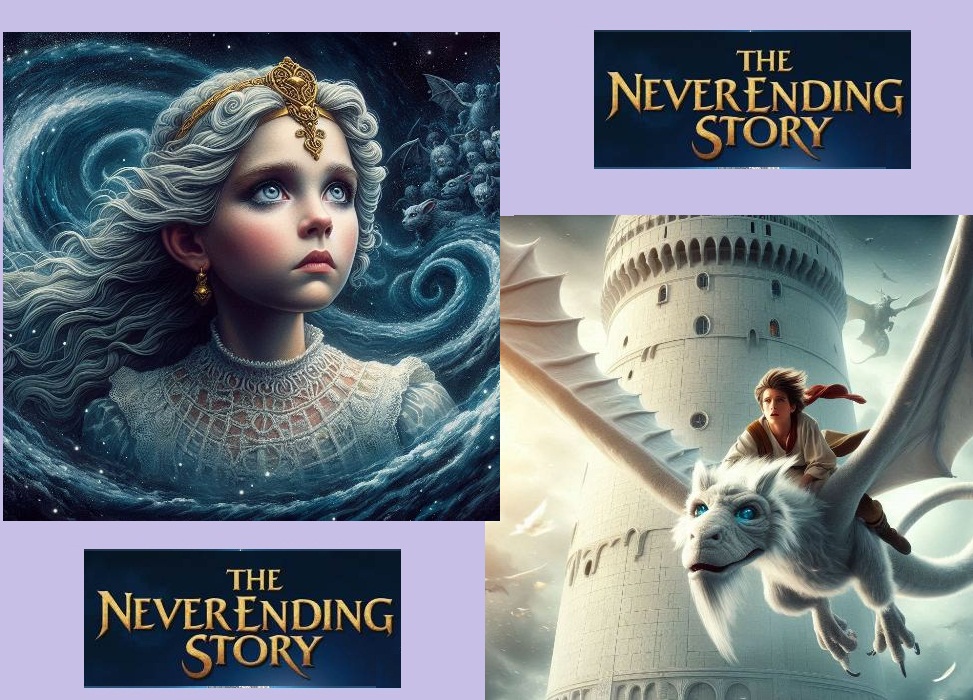

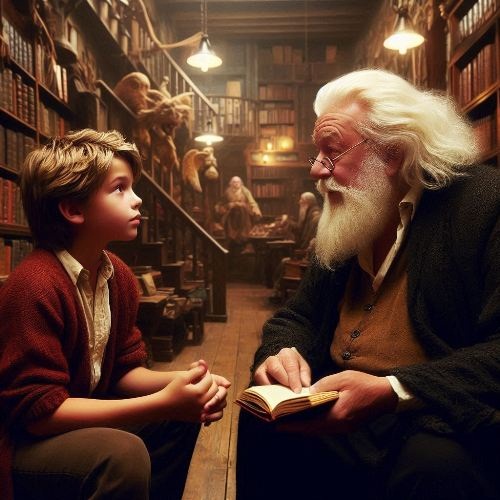


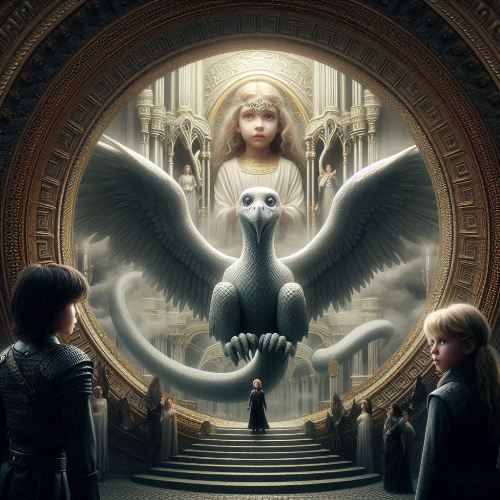









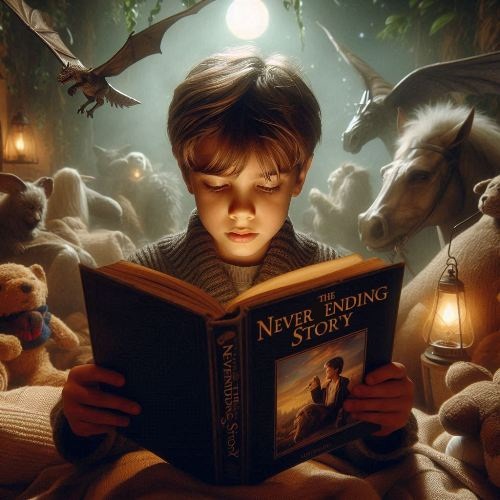
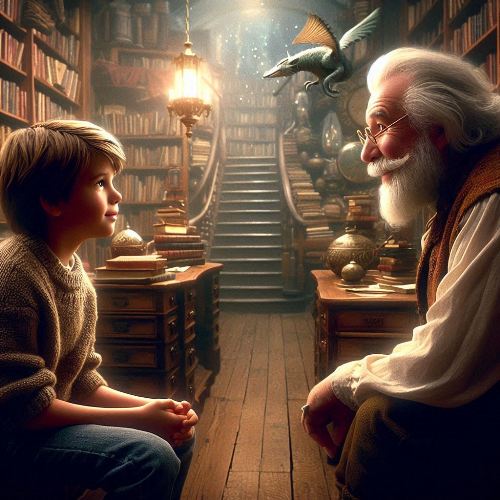






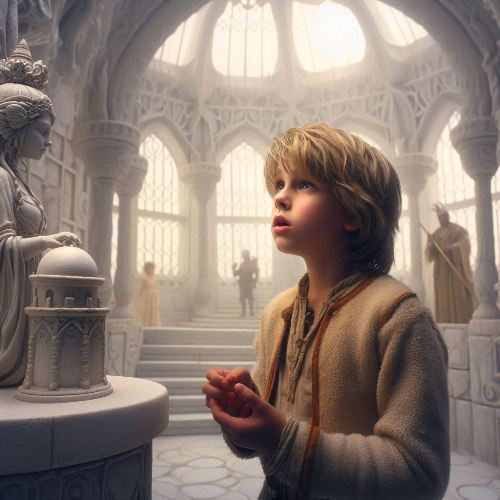








No comments:
Post a Comment